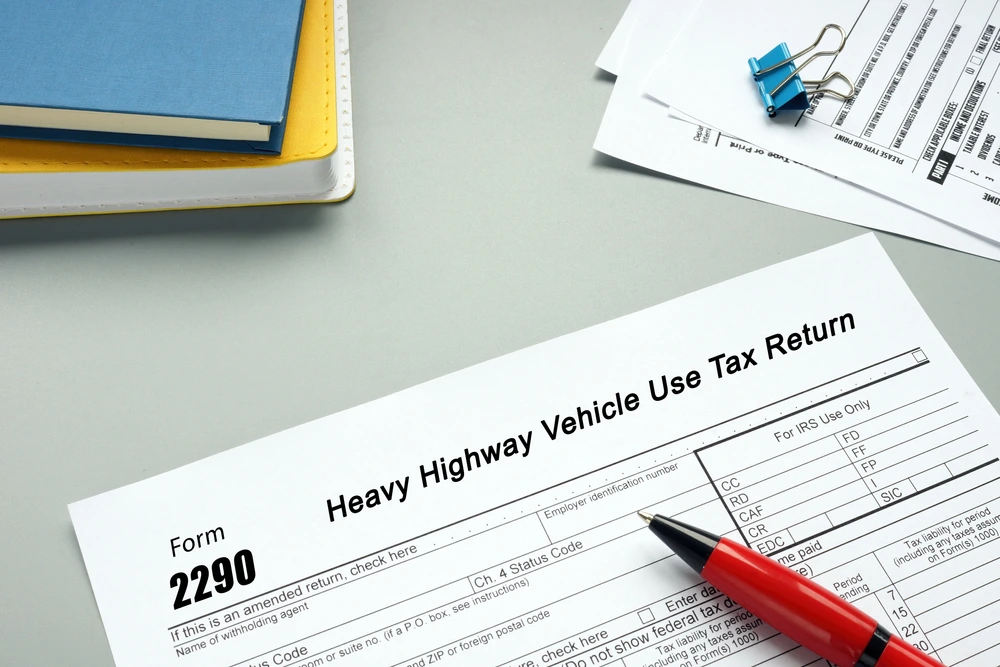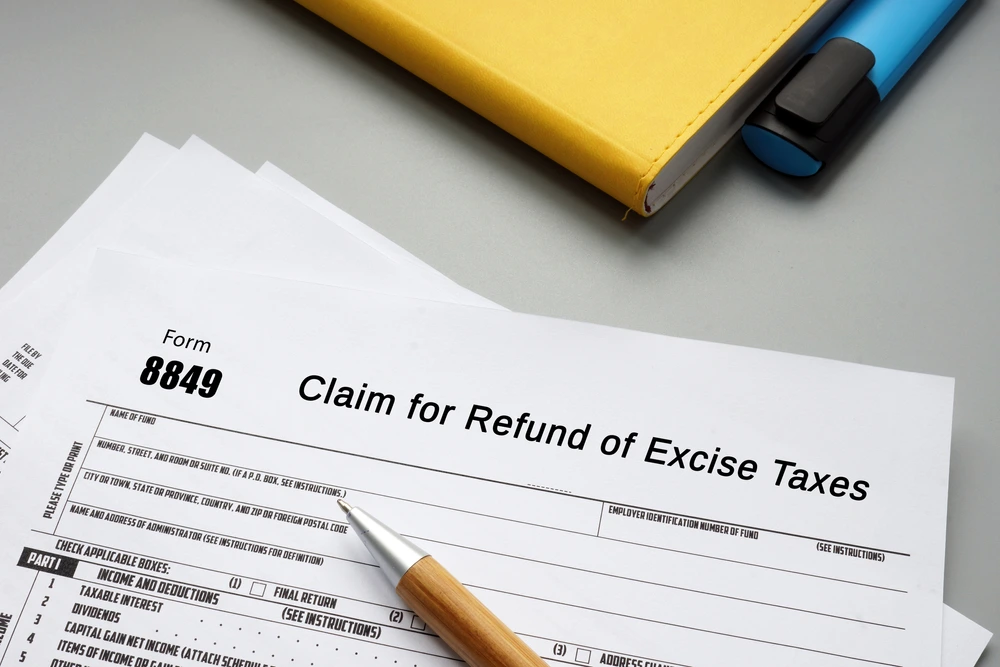For new truck drivers, getting behind the wheel is just the beginning. Whether you’re hauling freight across state lines or making local deliveries, there’s another road you need to understand—the tax road.
Why do tax deductions matter? Because they directly reduce your taxable income, which can significantly lower the amount of taxes you owe the IRS. As a truck driver, especially if you’re an owner-operator or independent contractor, you face unique expenses that most people never encounter—fuel costs, truck maintenance, meals on the road, and overnight stays. The good news? Many of these are deductible, meaning you can subtract them from your income when filing taxes.
Missing out on eligible deductions can mean paying more than you should, and let’s be honest—no one wants to hand over extra money to the IRS. Learning what qualifies as a deduction early in your career will not only help you stay compliant but also maximize your refund or minimize your tax bill each year.
This guide breaks down the essentials so you can start your trucking career with confidence, knowing exactly what you can deduct, how to track expenses, and why it matters to your bottom line.
Who Qualifies for Truck Driver Tax Deductions?
Not all truck drivers are taxed the same way, and that’s especially true when it comes to who can claim tax deductions. Your employment status—whether you’re an owner-operator, an independent contractor, or a company driver—determines what expenses you can deduct on your tax return.
Let’s break it down:
1. Owner-Operators
As an owner-operator, you own (or lease) your truck and run your own business. You’re responsible for your own expenses, from maintenance and fuel to insurance and equipment. The good news? You can deduct a wide range of these costs as business expenses on Schedule C when you file your taxes.
- Common deductions include: truck payments, fuel, repairs, lodging, meals (per diem), permits, insurance, and depreciation.
- You’ll also need to pay self-employment tax, which covers Social Security and Medicare, but deductions help offset this burden.
2. Independent Contractors (1099 Drivers)
Independent contractors are similar to owner-operators, but they may drive for a carrier using company equipment or their own truck. You still receive a 1099-NEC form instead of a W-2, which means you’re classified as self-employed in the eyes of the IRS.
- Like owner-operators, you can claim a wide array of business-related tax deductions.
- You’re also responsible for managing your own taxes, including making quarterly estimated payments to the IRS.
Tip: Both owner-operators and independent contractors must keep detailed records to claim deductions and avoid IRS penalties.
3. Company Drivers (W-2 Employees)
If you’re a company driver and receive a W-2, you’re classified as an employee rather than self-employed. Your employer covers many job-related costs, and unfortunately, you can no longer deduct unreimbursed employee expenses on your federal tax return due to changes made under the Tax Cuts and Jobs Act (TCJA).
TCJA Impact on Company Drivers (Since 2018):
- The TCJA eliminated miscellaneous itemized deductions, which included job-related expenses for W-2 employees.
- This means W-2 truck drivers cannot deduct meals, lodging, uniforms, or other unreimbursed expenses on their federal taxes.
However, some states still allow these deductions on state tax returns—so it’s worth checking your state’s rules.
Pro Tip for W-2 Drivers: If your employer offers a per diem program, you may still benefit from tax savings, as these are typically excluded from taxable wages.
- If you’re self-employed (owner-operator or 1099), you can deduct a broad range of expenses.
- If you’re a W-2 company driver, federal deductions are limited, but check your state laws and ask your employer about per diem options.
Understanding where you fall on the employment spectrum is the first step in making smart tax decisions as a truck driver.

Common Truck Driver Tax Deductions
Understanding which expenses are tax-deductible is crucial for reducing your taxable income and keeping more of your hard-earned money. Below are some of the most common deductions that owner-operators and independent contractors can typically claim:
Fuel and Mileage
Fuel is one of the largest ongoing expenses for truckers. As a self-employed driver, you can deduct fuel costs as part of your business expenses.
Actual Expenses vs. Standard Mileage
- Actual expenses include receipts and records for fuel, oil, maintenance, insurance, etc. Most long-haul truckers use this method because it provides a larger deduction.
- Standard mileage rate is a simplified method (based on IRS cents-per-mile rate), but it’s not commonly used by truck drivers because it usually yields a smaller deduction and can’t be used if you’ve already depreciated the vehicle.
Pro Tip: For heavy trucks (over 6,000 lbs GVWR), the actual expense method is typically required and more beneficial.
Truck Lease or Purchase Payments
If you lease or finance your truck, you may be able to deduct lease payments or interest on loans. However, this varies depending on ownership.
- Lease Payments: Deductible as an operating expense.
- Loan Payments: Only the interest portion is deductible (the principal is not).
Depreciation vs. Section 179 Deduction
When you purchase a truck or other large asset, you can recover the cost through:
- Depreciation: Deduct a portion of the truck’s cost over several years.
- Section 179 Deduction: Allows you to deduct the full purchase price of qualifying equipment (like your truck) in the first year, up to IRS limits.
Section 179 is especially valuable if you’re just starting out and need to offset high startup costs.
Maintenance and Repairs
Routine maintenance and repairs to keep your truck running are fully deductible. This includes:
- Oil changes
- Tires
- Engine repairs
- Brake service
- Alignment, etc.
Truck Insurance Premiums
Insurance premiums for your truck and business-related liability are deductible. This includes:
- Physical damage
- Cargo insurance
- Occupational accident coverage
Tolls and Parking Fees
Toll charges and parking fees incurred during business travel can be deducted. Be sure to keep receipts or log them digitally.
Lodging and Per Diem (Meals & Travel Expenses)
When you’re away from home for work, you can deduct:
- Hotel stays
- Meals, using either actual cost or per diem rates
Current IRS Per Diem Rates (as of 2025):
- $69/day within the continental U.S.
- $74/day for travel outside the continental U.S.
Using the per diem method simplifies recordkeeping and avoids the need to track every receipt.
Cell Phone and Internet (Work Use)
If you use your cell phone or internet for business (dispatch, GPS, communication, etc.), a portion of the monthly bill can be deducted—typically the business-use percentage.
Licensing, Permits, and Fees
Mandatory licenses and permits required to operate legally—such as:
- CDL renewal fees
- IRP and IFTA fees
- DOT physicals and drug testing
These are all tax-deductible business expenses.
Supplies and Tools
Commonly deductible supplies include:
- GPS devices
- CB radios
- Dash cams
- Work gloves and safety vests
- Logbooks and stationery
These everyday items, while small, can add up to a significant deduction.
Training, Certifications, and Union Dues
If you pay for continuing education or certification to maintain or improve your driving skills, those costs are deductible. This also includes:
- CDL training (if you’re already in business)
- Safety classes
- Union dues or trade association memberships
Each of these deductions can make a big difference come tax time, especially when tracked and documented properly. If you’re unsure about any expense, it’s better to save the receipt and consult a tax professional later.

What’s NOT Deductible
While many job-related expenses can reduce your taxable income, it’s just as important to know what you can’t deduct—especially to stay compliant with IRS rules and avoid audit triggers. Here are a few common expenses that truck drivers often assume are deductible but actually aren’t:
1. Personal Expenses on the Road
Even if you’re away from home for days or weeks at a time, personal expenses are never deductible, even if they occur during your work trip. This includes:
- Entertainment (e.g., movies, streaming subscriptions, sightseeing)
- Snacks or groceries not consumed while working or traveling
- Gifts or souvenirs
- Personal hygiene items
Tip: Only meals and lodging incurred while traveling for work are deductible, and even then, they must meet IRS guidelines.
2. Commuting Between Home and Dispatch Center
One of the most misunderstood rules is about commuting. The IRS clearly states that driving from your home to your regular place of business (like a terminal, yard, or dispatch center) is considered personal commuting—not business use.
Even if you’re using your own vehicle, or you’re technically “on the clock,” this kind of travel cannot be deducted.
Exception: If you’re traveling from home directly to a temporary job site or different starting point, you may qualify for a deduction—but this is highly situational and should be documented carefully.
3. Clothing (Unless It’s Protective Gear)
You might spend a lot on durable or branded clothing for the job, but regular work clothes are not deductible unless they meet very specific criteria:
- They must be required for your job
- They aren’t suitable for everyday wear
- They serve a protective function
Examples of deductible gear:
- Steel-toe boots
- Reflective safety vests
- Hard hats
- Coveralls or gloves designed for hazardous work
Examples of non-deductible clothing:
- Jeans, t-shirts, or boots that can be worn casually
- Company-branded apparel (unless it meets the above criteria)
- Raincoats or jackets that aren’t safety-rated
When in doubt, ask yourself: Is this expense directly related to operating my trucking business and required for me to do my job? If the answer is no—or if it serves a dual personal purpose—it’s likely not deductible.
Keeping these rules in mind will help you stay on the IRS’s good side and ensure your deductions are legitimate and audit-proof.
How ExpressTruckTax Can Help
If you operate a vehicle weighing 55,000 pounds or more, you’re required to file IRS Form 2290 each year to pay the Heavy Vehicle Use Tax (HVUT). ExpressTruckTax makes this process simple and quick—most users can file in under 10 minutes.
- Easy 3-step process: enter vehicle info, choose your payment method, and transmit to the IRS.
- Instant notifications let you know when your return is accepted.
Even better? You’ll receive your IRS-stamped Schedule 1 within minutes after filing—this document is required for vehicle registration and tag renewals at the DMV.
ExpressTruckTax was built with truckers in mind—especially new drivers learning the ropes. From helpful tips to real-time updates and free corrections, it’s the ultimate sidekick for staying compliant, saving time, and avoiding costly mistakes.



